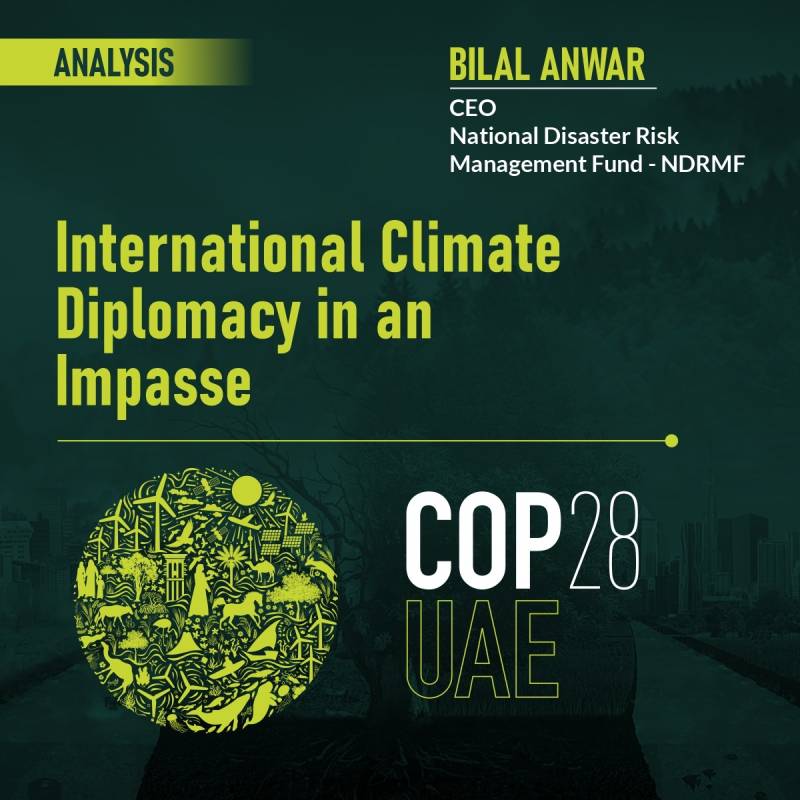
National Disaster Risk Management Fund
With the COP28 round the corner international climate diplomacy is once again set to spring into action in the figuratively illustrative desert venue of Abu Dhabi, United Arab Emirates.
Global political figures and high profile personalities are eager to gather for a period of two weeks to grapple with the unprecedented and most critical challenge of modern civilization – climate change. The decisions adopted and targets set in UAE will have profound consequences, not just for the eight billion people inhabiting our planet but also for the health and sustainability of the Earth itself. Despite the utter seriousness of the issue and a long history of annual COP renditions a perception justifiably prevails that international climate diplomacy has so far largely failed to deliver any meaningful results. Yes, Paris Agreement was adopted in 2015 and quickly became effective, with a clearly defined goal of limiting the global average temperature increase to below 02 degrees Celsius before the turn of the century.
Average temperature increase between1.5 to 2.00 degrees is scientifically determined to be not exactly ideal but the upper limit, so called the tipping point, where resulting climatic challenges and associated economic and social cost may be bearable provided adequate financial and technical assistance is made available in a timely manner. However, emissions of harmful greenhouse gases continue to be unmanageable, persistently surging at an alarming rate, thereby posing a grave risk of exceeding the set temperature control targets established in the Paris Agreement.

Developing and economically underprivileged countries are unfairly suffering due to rigid and unconcerned response of rich but on climate action and promises defaulting nations. Somehow the indisputable historical liability developing countries carry is not being acknowledged. Consequently, countries of the South continue to pay the price of sustenance of lavish lifestyles of global North.
This expressively demonstrates the impasse in international climate diplomacy, where instruments of international diplomacy have failed to reach a consensus on common improvements. On the contrary, early signs and scientific studies now irrefutably indicate that intensity, gravity, scale and frequency of disasters is in all likelihoods set to increase in the coming years and decades. With climate change showing its adversaries at scale, countries are losing their costal lines, agricultural land turning into deserts, water resources depleting with the threat of survival of communities. When the survival of communities and the natural and economic resources of vast number of people around the world are at stake, as is currently the case for many countries, international diplomacy must come into full swing. It should not to hindered or stalled due to difference in understandings or opinions and arguments about who carries the bigger share of responsibility.
· Hasn’t the diversity of opinions and mutual recognition of divergent perspectives been the hallmark of innovative and adopted solutions for complex global problem?
· Why we seem to be not been successful in dealing with climate change?
It undeniably underscores the urgency for a significant transformation in the international climate policy development process and support mechanisms for climate action.
But what would this transformation entail?
First and foremost, it must be emphasized that the climate diplomacy is a multi-faceted and intricate challenge, characterized by competing interests of nations, groups and geographies in constant struggle of agreeing on common grounds under the need and spirit of shared responsibilities. This is where international multilateral process becomes handy. Multilateralism, as it evolved in the last seven odd decades, entails mechanisms of dialogue, cooperation and facilitation as its established tools. But effectiveness of multilateral processes heavily rests on the principles of shared values and responsibilities. As in 2020, celebrating the International Day of Multilateralism and Diplomacy for Peace, United Nations Secretary General António Guterres said that “it is not enough to proclaim the virtues of multilateralism; we must continue to show its added value”.
Cooperation, dialogue and partnerships among major international and regional blocks are essential elements of international diplomacy fostering shared responsibility towards climate action. The notion of shared responsibility also dictates that a group of countries due to their size, economic advancement and historical contributions in global GHG emissions must carry more responsibility and come forward with technical and financial assistance for the deserving group of countries to support their climate actions.
It also demands that in today’s interconnected world many economically rationalized and nationally driven decisions may not be appropriate for the global climate agenda. For instance, energy choices by countries and associated environmental and carbon tribulations have direct international and regional implications. Without questioning the national sovereignty and freedom of policy, climate diplomacy is meant to address such challenges under the rule-based international order. Such order essentially dictates that in international climate change policy development and action, gains of the one are the gains of all and the loss of the few will not be restricted to few but felt throughout the world.

